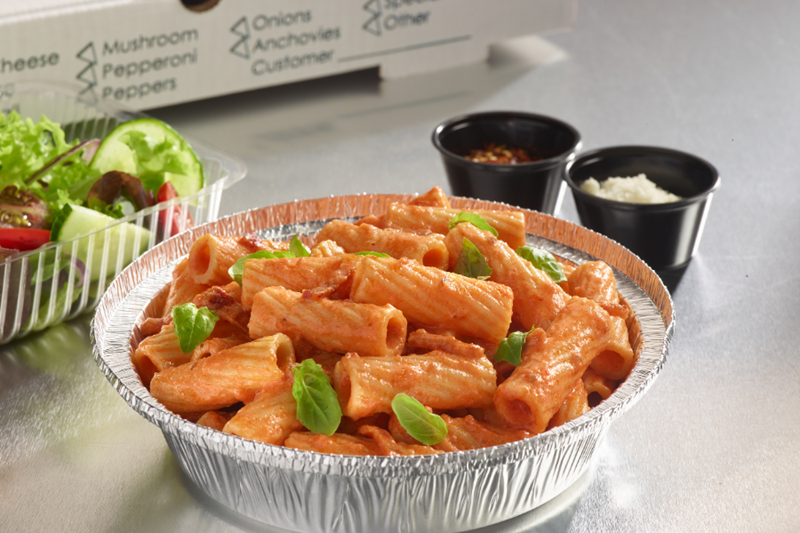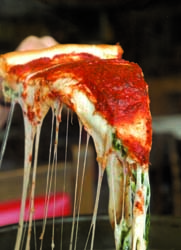 For operators who are considering expansion, the current recession may represent the best of times and the worst of times. Banks are holding money close to their chest, and loans may be tough to come by. But owners looking to lease may find a far better market than they expected.
For operators who are considering expansion, the current recession may represent the best of times and the worst of times. Banks are holding money close to their chest, and loans may be tough to come by. But owners looking to lease may find a far better market than they expected.
Take Primanti Brothers. The legendary Pittsburgh sandwich and pizza operation expanded to Florida 15 years ago, where its pizza has attracted a loyal following. When Eric Kozlowski, who’s in charge of the company’s Florida locations, looked for a new space in Broward county recently, what he found amazed him: In an area where there were once few openings, he found dozens of empty storefronts, many of which had been restaurants. Kozlowski looked at a bankrupted Fuddruckers; a bankrupted Hops, the brew pub chain; and a bankrupted Shells, the Florida seafood chain. The Hops was available for lease at $13,000 a month, the Fuddruckers at $12,500. But the empty Shells — an enormous 4,700 square foot building on a very busy road — came in at a mere $8,000.
How did Primanti Brothers get such a good deal? “There simply wasn’t anyone lining up to take it over,” Kozlowski says. “The reality is that these are out there right now. And I’m going to go look for some more.”
But Kozlowski has an advantage: He’s looking in Florida, where the economic recession has hit many businesses very hard. Conditions elsewhere may not be as favorable, according to Dean Small, managing partner of Synergy Restaurant Consultants. “There are amazing deals out there,” Small acknowledges. But in places where rents haven’t fallen and businesses haven’t keeled over, property owners won’t cut a deal on high-traffic spaces. “Those landlords, unless they’re upside down and financially struggling, realize what they have.” That said, many consultants agree that good leasing opportunities abound: “If I had a pizza concept and I wanted to expand it, this is the best time in the world,” says Lloyd Gordon, president of GEC Consultants.
Buying property is difficult these days, even for businesses with significant cash flow. Then again, buying property has never been easy for independent operators. “Banks have never liked restaurant ventures,” says Bill Boyd, a Raleigh real estate broker who handles restaurant property for Kimball & Company. The current tough climate, he says, is not so much a new problem as an exacerbation of an existing problem. But for owners looking to lease, the situation is reversed. “Today, when I negotiate a lease,” says Lloyd Gordon, “the first thing I tell my client is, for the first time in a long while, you’re in the driver seat.”
The single biggest mistake operators make when negotiating a lease may be not hiring a good broker. Many clients avoid brokers in order to save money, but that’s backward: Brokers are typically paid by the landlord. A good local broker is invaluable: He or she knows comparable market rates and how much a landlord is willing to bend in a negotiation. As Boyd puts it, “A broker beats up the landlord on what they need to be beat up on.”
That may turn out to be tenant improvement dollars. Even if a property was formerly a restaurant, there is almost always construction required for a new tenant, and those expenses can sink a balance sheet. “Once you put in a hood or a grease trap, you can’t take it with you; it stays there,” Small says. That’s why Small advises tenants to prioritize having the landlord pay for renovations. “If the landlord puts money in, he’s going to have skin in the game,” he says. An operator should also negotiate for free rent during construction, Small says, but bearing in mind that construction, once plans are approved and carried out, can drag on; free rent can disappear in no time.
Lease length is crucial: the longer the lease, the lower the monthly rent. It’s customary to negotiate a five-year minimum lease with multiple options for five additional years. Signing a longer lease may seem a risk, but it actually can make a business more valuable. “Should you decide you want to get out of business,” says Gordon, “that lease becomes a valuable asset.” A lease should explicitly state when the rent will increase and by how much; it should also stipulate a penalty, typically at least several months rent, if the tenants need to break the lease.
What’s the best way to get all this? “You’ve got to package it,” says Small. “And it can’t be on a few pieces of scrap paper.” He recommends presenting a business plan that’s as transparent and realistic as possible and that includes a biography of the project and key individuals involved.
And before you sign off, remember the industry guideline: Keep property costs at under 7 percent of sales. If the Primanti Brothers had purchased the old Shells location, Kozlowski estimates the mortgage payments would have been $14,000 a month. Their lengthy 30-year lease, on the other hand, which came with a long-term option to buy and the first six months free, costs just over half that. Since the new restaurant, which is a pizzeria-sports bar, is on track to do $2 million its first year, that puts rental expenses well below 7 percent. “How do you not lease at that money?” he asks. “There are amazing deals out there.” ?
Tips and Tricks
? Negotiate, negotiate, negotiate. Never assume anything is off the table. Restaurant consultants and brokers say the same thing: If you want it, ask for it. And be persistent.
? Know the legal niceties. Hire a lawyer early in the process and consult him or her throughout. Buying or leasing is a lengthy ordeal with binding consequences. Don’t get caught unaware.
? Find a broker. Brokers are frequently paid by the landlord, not the tenant. They know the local market rates, and they often can negotiate a far better deal than operators flying solo.
? Think long-term. A longer lease will normally have lower monthly payments, and it could turn into a valuable asset on its own.
? Tenant improvement dollars. Almost any space will require significant upfitting, or renovation. Since those improvements stay with the property, press hard to have the landlord cover all or part of the cost.
Nicholas Day is a freelance writer who covers food and drink for a variety of publications. He resides in New Haven, Connecticut.



